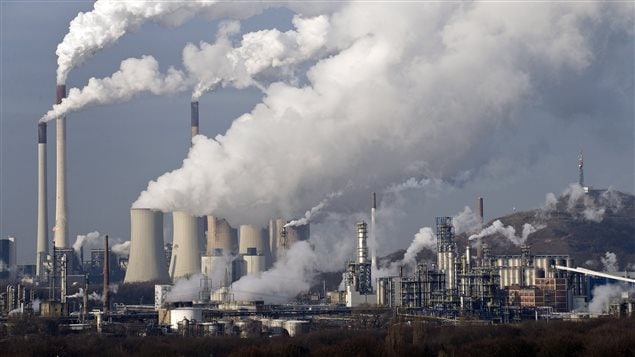The world must cut carbon emissions or climate change will inflict “severe, widespread, and irreversible impacts”, reads the most important assessment of global warming to date. The International Panel on Climate Change (IPCC) synthesized three of its studies to produce a digestible report of what is happening and what can be done to mitigate the worst effects of climate change.
The world must wean itself off fossil fuels and do it soon, say scientists. And their language has likely been tempered by bureaucrats from all the countries who approved the document, says Matthew Paterson, a professor at the University of Ottawa specializing in the politics of climate change.
ListenCanada promotes oilsands industry
Over the next year governments will try to come up with a new deal on limiting greenhouse gas emissions. Canada is not likely to change its position, he says. Canada has refused to meet its commitment to Kyoto Protocol and is seen internationally as a laggard in dealing with the issue.
Part of the problem is that the current Canadian government is a promoter of the oil sands industry which accounts for much of the country’s emissions output, says Paterson. But beyond that, he says the very nature of the federation means the central government cannot pass relevant measures because they lie in the jurisdiction of the provinces.

Canada’s position ‘costly’
Canada’s position has cost it dearly in terms of its international stature, says Paterson, but also will harm it economically. He says if Canada continues to invest heavily in oil infrastructure, it may be left behind when the rest of the world heeds climate warnings and no longer wants to buy oil.
There is hope however, says Paterson. He notes that provinces and municipalities are taking steps to reduce greenhouse gas emissions. The IPCC document provides practical information about what has worked and what policy makers can do to mitigate climate change.







For reasons beyond our control, and for an undetermined period of time, our comment section is now closed. However, our social networks remain open to your contributions.